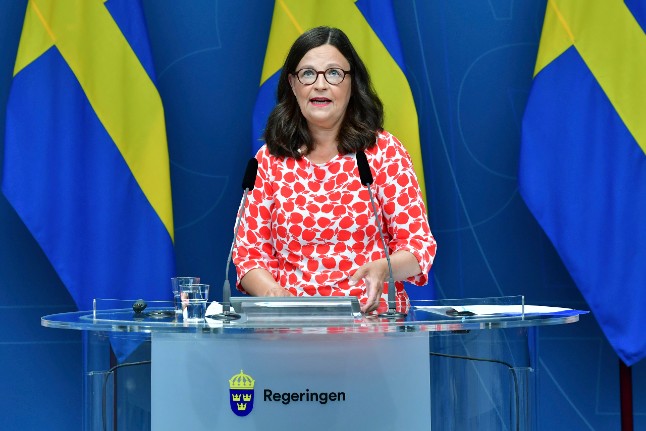What is Sweden's school curriculum?
In the Swedish school system, what is taught at primary and lower secondary school, grundskola, is governed by 'course plans', kursplaner, and 'teaching plans', läroplaner, while what is taught at upper secondary schools is governed by 'subject plans', ämnesplaner.
Why was there a need to change the curriculum?
The curriculum currently in place is little changed from that brought in under the previous centre-right Alliance government in 2011.
That curriculum has been criticised by teachers, students and their parents for having confusing and complicated criteria for grading and guides for teaching that can be hard to interpret.
“Imprecise and confusing curriculums and lessons plans make teachers' jobs more difficult and reduce the possibility of pupils to understand what they're supposed to learn,” Sweden's education minister Anna Ekström said at a press conference announcing the changes.
She also said that both parents and teachers had long complained that the previous curriculum demanded and unrealistic level of analysis from pupils of an early age.
“I know that there are many parents who have been astonished when they have seen what demands are made on the ability to analyse at low ages for children,” she said.
At the press conference, Ekström complained that the existing curriculum also failed to make clear enough differences between what knowledge was required in subjects at different levels, leading to repetition and a lack of clarity.
She said that the previous curriculum also led to what she called stoffsträngsel, or 'contents congestion' – that it included so many details and requirements that it was impossible for teachers to get through in the hours provided.

Photo: Jonas Ekströmer/TT
So what's been changed?
The new curriculum, announced in a press release on Friday, is more concise, with a greater emphasis on factual knowledge and understanding, and less emphasis on pupils' ability to research and analyse themselves.
Back in 2011, some educationalists felt that near-universal access to the internet had made factual knowledge less important than the ability to research and assess information.
Ekström said the new curriculum brought a renewed emphasis on factual knowledge and understanding.
“That knowledge is a good in and of itself is put forward much more clearly than it was the former curriculum,” she said at a press conference announcing the changes. “There is a clear focus from the government that it should be knowledge and understanding which is the focus of Swedish schools.”
She said that the new curriculum was also clearer and more concise.
“We have tried to concentrate the contents, take out the unnecessary examples — that’s something teachers can and do provide themselves,” she said.
The requirement for students to carry out their own analysis will increase with age, while the knowledge requirements have been made less detailed and extensive, making them easier for teachers to use.
In addition, the content will now differ more clearly between different year groups and courses.
Who is responsible for changing the curriculum?
The curriculum has been written by the Swedish National Agency for Education (Skolverket), but the change in focus was demanded under the January agreement struck between the Social Democrat, Green, Centre and Liberal parties.
This stated that “course and teaching plans should be revised to strengthen the emphasis on knowledge and factual knowledge, and to encourage diligence and ambition”.
The decision to approve Skolverket's final proposal, which was submitted in December, was made by Sweden's two-party red-green coalition together with the Centre and Liberal parties.
What was the criticism last year about?
When Skolverket submitted its first proposal last autumn it was sharply criticised for the decision to leave out ancient history, the bible, the psalms and the national anthem.
There was also concern that the curriculum required pre-teens to do “advanced literary analysis”.
Both of these criticisms have been met in the final curriculum agreed between the four parties, with ancient history and the bible back in and the level of required literary criticism scaled back.
Requirements for grades clearer and less specific




 Please whitelist us to continue reading.
Please whitelist us to continue reading.
Member comments